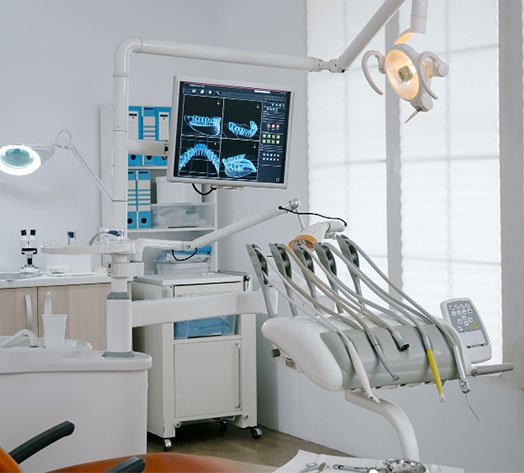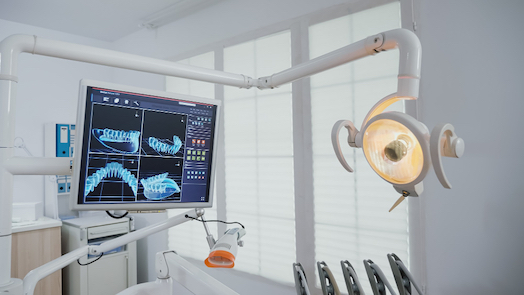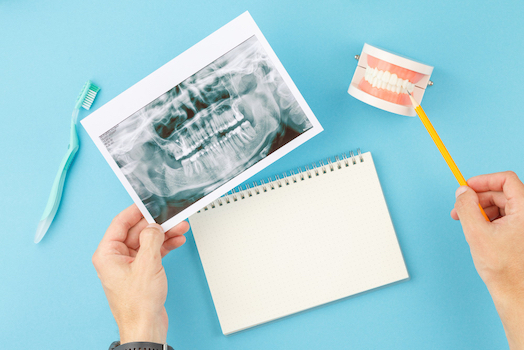Dental X-rays
Bringing the Insides Out!
Dental X-rays Albury
Dental X-rays can detect trouble early on in your mouth, teeth, gums and jaw. Treating problems before they get serious can save money, pain and sometimes even your life.

Who Needs Dental X-rays?
Dental X-rays are used to help dentists detect issues that are otherwise nearly invisible to the naked eye.
Adults receive X-rays so the dentist can better identify and treat various issues.
Using these X-rays, your Albury dentist can detect:
- Decay, between teeth or under a filling
- Bone loss
- Abscess at the tooth root or between the tooth and gum
- Tumours
- Changes in the root canal
Without dental X-rays, many of these problems could go undiagnosed. With an X-ray, your Albury dentist is better equipped to prepare dental implants, dentures, braces, and other similar treatments.
Why Dental X-rays are Performed
Dental X-rays are typically performed yearly. They can happen more often if your Albury dentist is tracking the progress of a dental issue or treatment.
Factors affecting how often you get dental X-rays may include the following:
- age
- current oral health
- any symptoms of oral/dental disease
- a history of periodontal disease or tooth decay
If you’re a new patient, you’ll undergo dental X-rays so that your new dentist can get a clear view of your dental health.
This is important if you don’t have any X-rays from your previous dentist.
Young patients may need to undergo dental X-rays more often than adults because their dentists might need to keep track of the growth of their permanent teeth.
This is important because it can help your Albury dentist determine if temporary teeth need to be pulled to prevent complications, such as permanent teeth growing in behind temporary teeth.

Preparing for Dental X-rays
Dental X-rays do not require any before your appointment.
To create a more hygienic environment for those working on your mouth, dental X-rays are usually done before cleanings.
Types of Dental X-rays
There are several different types of dental X-rays, which record different views of your mouth.
The most common are intraoral X-rays, including:
Bitewing. This involves biting down on a special piece of paper so that your Albury dentist can see how well your teeth line up. This is commonly used to inspect for cavities between teeth.
Occlusal. This is done when your jaw is closed to see how your upper and bottom teeth match up. It can also detect anatomical abnormalities on the floor of the mouth or the palate.
Panoramic. For this type, the X-ray machine rotates around the head. Your Albury dentist may use this to check your wisdom teeth, plan for implanted dental devices, or examine jaw problems.
Periapical. This technique focuses on two teeth from root to crown.
Extraoral X-rays may be used when your Albury dentist suspects there might be issues in areas outside of the gums and teeth like the jaw.

After Dental X-rays
When the images are ready, your Albury dentist will review them and check for abnormalities.
If a dental hygienist is cleaning your teeth, your Albury dentist may look through the results of the X-rays with you after the cleaning is done. The exception is if the hygienist spots any problems during the X-rays.
If your Albury dentist finds problems, such as cavities or tooth decay, they’ll discuss your treatment options.
If your Albury dentist finds no problems, keep up the good work!
Dental X-rays in Albury
Dental X-rays performed at Kreativ Dental Albury are safe and beneficial. If you want to schedule a dental appointment with your Albury dentist, visit us today!
Give your Albury dentist a call on (02) 6021 4171 for more information. Request your appointment online.
We are located at 525 Wilson St in Albury.
Frequently Asked Questions
What are the risks and complications of dental X-rays?
Why are there different types of X-rays?
What are the benefits of dental X-rays?
Dental X-rays are quick, painless, and safe, exposing the patient to a minimal amount of low-level radiation while providing invaluable information to your Albury dentist.